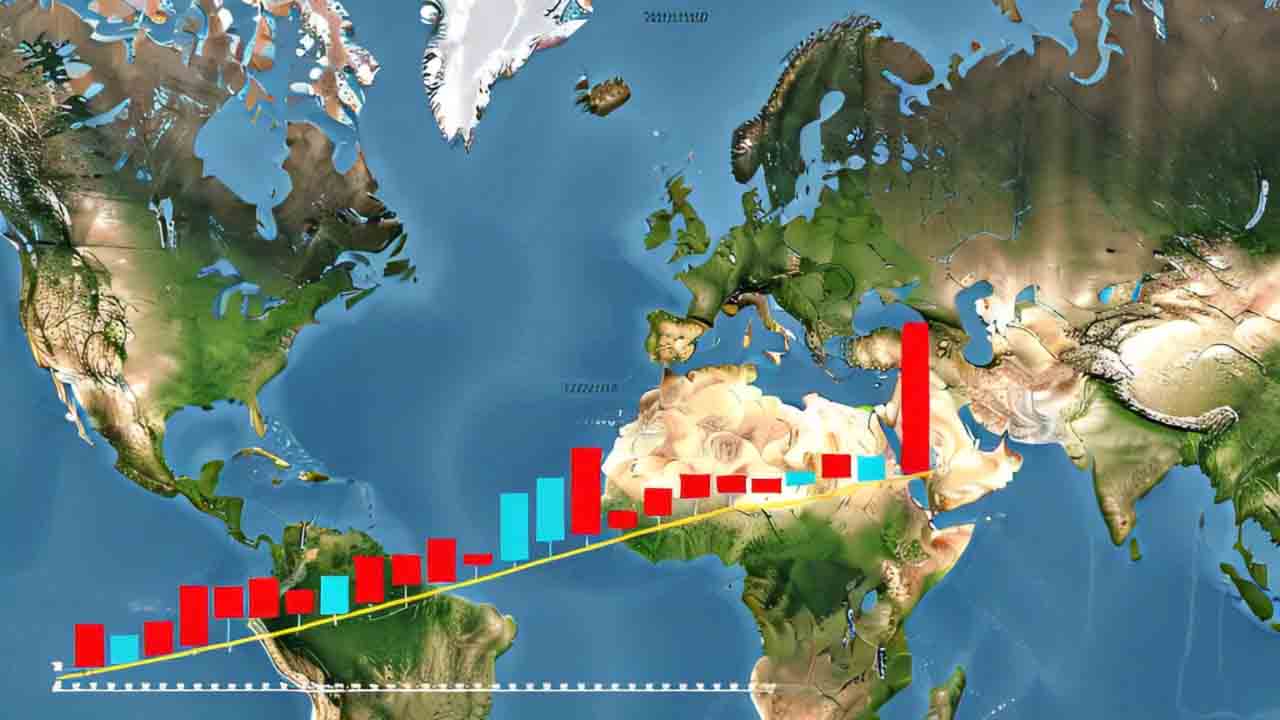
Arcadiadaily – Global tariff tensions continue to shape the international economic landscape, as President Donald Trump navigates complex trade negotiations with several countries, most notably China. These negotiations have led to an increase in tariffs and a series of delays, leaving businesses and markets uncertain about the future. The ongoing trade war, which has already disrupted global supply chains and increased costs for consumers, is now at a critical juncture. With each round of talks and tariff hikes, the risks of an economic slowdown become more apparent, and the global market is forced to adjust.
As global tariff tensions escalate, economists are increasingly warning about the potential consequences for the global economy. Leading financial institutions like JPMorgan and Goldman Sachs have pointed to a rising probability of a global recession, with estimates suggesting a 60% chance due to the ongoing trade disputes. These tensions affect not only countries directly involved in the trade wars but also have a ripple effect on the global economy. Tariff increases lead to higher production costs, disrupted trade flows, and inflationary pressures, all of which contribute to economic instability.
“Caterpillar Unveils Low Carbon Diesel Engine”
Countries that rely on international trade are particularly vulnerable to these disruptions. Export-driven economies face difficulties in maintaining profitability, while consumers in importing countries may face higher prices on everyday goods. With the global economic recovery still fragile after the COVID-19 pandemic. These tariff-related uncertainties could hinder growth and delay any substantial economic recovery. Exacerbating existing challenges for both developed and emerging economies.
The long-term effects of global tariff tensions remain uncertain. And much depends on how trade negotiations evolve in the coming months. Some experts believe that a resolution could ease some of the pressures currently facing the global economy. But others are less optimistic. With tariff policies tied to political strategies, particularly in the U.S., the uncertainty surrounding trade relations may persist for years. This ongoing situation also raises important questions about the future of globalization and whether countries can rely on free trade agreements in the same way as before.
The ability of governments to resolve these issues through diplomatic channels will play a crucial role in determining the trajectory of global trade. If the tariff tensions continue without resolution. It is likely that the world will face a prolonged period of economic uncertainty. Potentially leading to slower growth, reduced investment, and increased protectionism. As the global economy continues to navigate these turbulent waters, businesses, consumers. And governments must adapt to the shifting landscape shaped by these global tariff tensions.
“The Rose Field: Pullman’s Epic Finale to The Book of Dust”